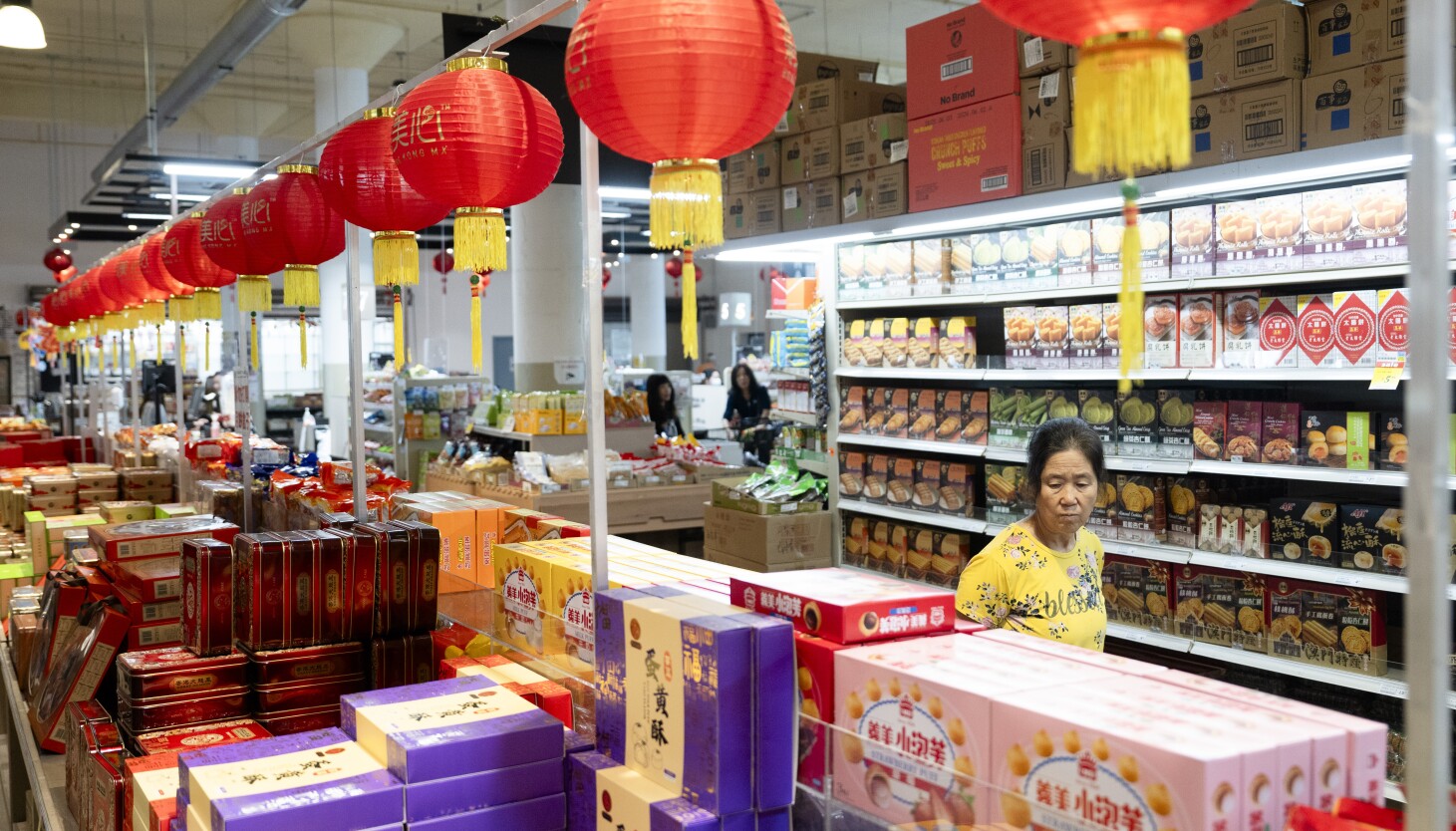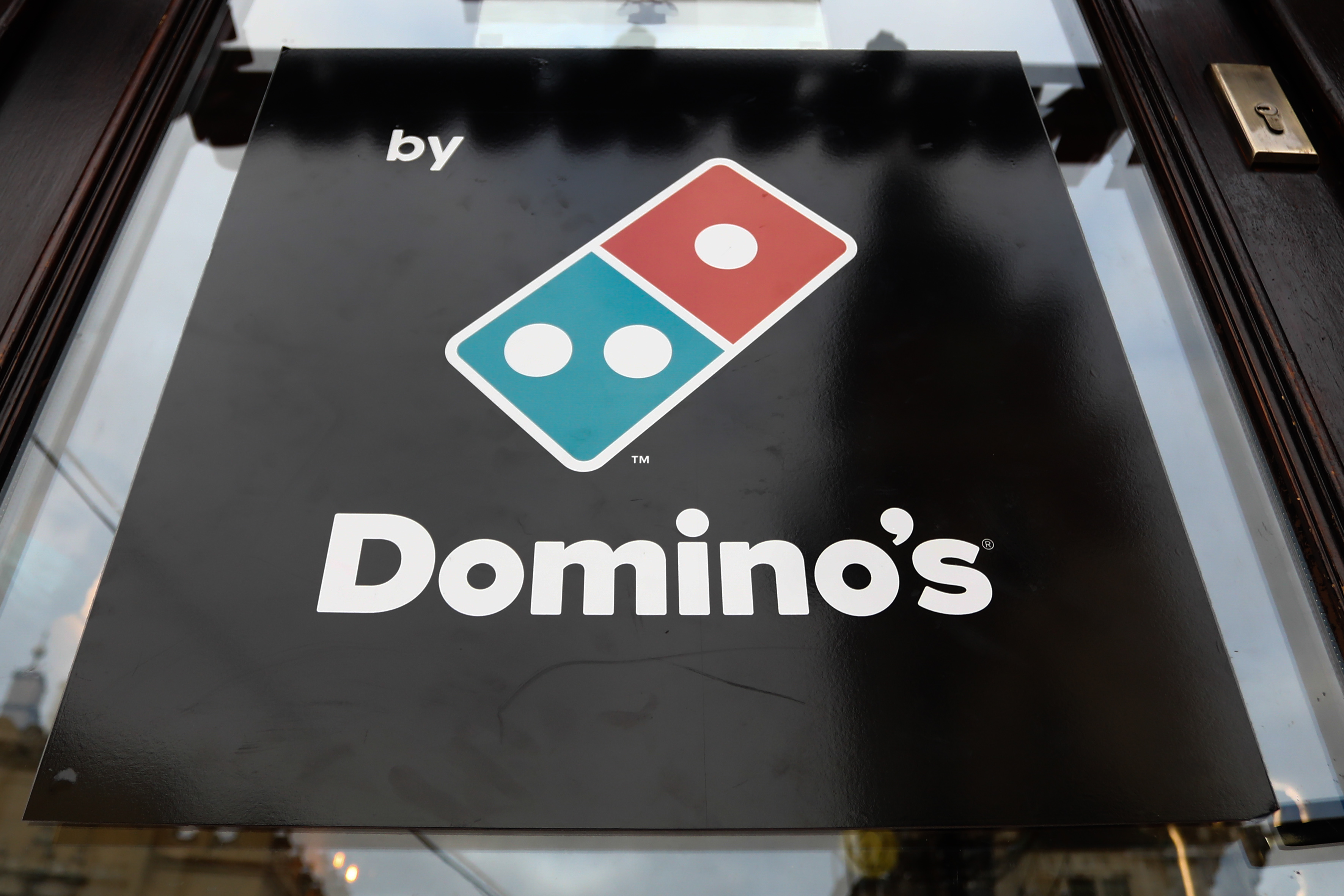
A 10-pack of the popular instant noodle brand Shin Ramyun is $10.99 at 88 Marketplace, an Asian supermarket in the Lower West Side near Chinatown. But the South Korean ramen brand’s prices could soon increase, as President Donald Trump’s trade war wages on.
Jan Zhu, store manager at 88 Marketplace, said the recent 15% import tariffs on South Korean products will make it harder for the grocer to keep prices down.
While the store is absorbing some of the price increases, Zhu said it has still been forced to pass along some cost hikes to customers.
Trump has pushed for tariffs as a way to boost U.S. manufacturing and force countries like Mexico and China to curb the flow of illegal drugs and migrants into the U.S. This year, he’s announced tariffs on nearly every country at rates ranging from 10% to as much as 50%.
The taxes have hit a number of consumer products from cars to toys, but particularly food such as tea, tree nuts, spices and rice. The U.S imported 1.4 million metric tons of rice from around the world in 2024. Of this, Thailand, which faces 19% tariffs, and India are top suppliers to the U.S., followed by China, Pakistan and Vietnam, according to data from the World Bank.
Tariffs are hitting Chicago’s ethnic and international grocery stores particularly hard because most of their products are imported. And often, these items, like grains, spices or herbs, are not easily sourced in the U.S.
“It is a total mess right now,” Waseem Hashlamoun, manager of Dukan International Food Market in Albany Park, said. “We support products that are made in the U.S., but it takes time to build the supply of merchandise.”
Hashlamoun said 80% of his merchandise is imported. Tariffs have also put a few of his suppliers from India and China out of business, forcing him to search for new partners and enter cash advance agreements to be able to buy some merchandise.
Zhu faces similar supply concerns. “While the tariffs are not as high as April and May, there is still a supply shortage,” she said. “Items like certain spices and cakes are taking longer [to arrive].”
The price of grocery items is a major consideration for diaspora communities who shop at ethnic stores, according to Stephen Caine, co-managing partner of Bain and Co.’s Chicago office and member of its retail practice.
“[The] ethnic grocery customer base will pay a premium because they want a specific product or brand from their homeland. … But in many cases, they are a value-oriented customer,” Caine said.
The spending power of immigrant-led households in Illinois is an estimated $68.5 billion, with their estimated tax contributions, including federal, state and local taxes, at $27.4 billion, according to the Vera Institute of Justice.
In Chicago, an estimated 1.7 million immigrants live in Chicago, which makes up 18% of the city’s population. And around 1.1 million immigrant workers make up 22% of Chicago’s labor force, according to the institute, whose March report includes naturalized citizens.
John Ahmed, who manages a halal meat and produce supermarket at 2650 W. Devon Ave. in West Ridge, has sharply felt the price impact on rice, pulses like beans and lentils, tree nuts and even cookware. His suppliers from Pakistan and Afghanistan have been slapped with 19% and 15% tariffs, respectively. Meanwhile, the U.S. has capped its China tariffs at 30% under a tariff truce that lasts through Nov. 10.
Zhu has noticed Chinese imports like steel pots have become pricier. Since early August, she said suppliers have charged $12 to $13 for steel pots that were previously sold for $10.
Hashlamoun is mindful that his customers, particularly families who might have a fixed budget, may have to forgo buying their non-essential grocery staples.
“Not every item that a customer buys at our store is for the price point; sometimes it is for a particular taste, and if the prices increase on those products, there are hardly any alternatives or substitutes,” Hashlamoun said.
“It’s not like wages are also rising fast enough. … The main issue is that the consumer is paying for it. Nobody’s going to pick up the tab. The country is not going to pick up the tab. The president is not going to pick up the tab.”
Ajeet Singh, president of the Indian American Business Council, said tariffs are a big thing for small businesses. Supply challenges have rocked its members, some of whom are delaying shipments or holding onto stock to tide them over the uncertainty.
“Our hands are tied,” said Singh, who is hoping that the U.S. and India agree on a trade deal.
Singh feels the bigger impact will be on Indian-American working-class households, who will feel squeezed when their average weekly grocery bill goes up.
Saad Ali, manager of West Ridge’s Nayab Mart at 2449 W. Devon Ave., had largely avoided tariff-induced price increases from his suppliers in India and Pakistan until August.
“We’re just checking the market right now. We are talking to several vendors, some Pakistan vendors, some Indian vendors. … This is the stock we have right now with the old prices,” Ali said, pointing to an aisle of masalas and spices. “But eventually, we have to increase the prices.”
Caine said major grocers, who often have a few dedicated aisles for international products, are often able to absorb price increases, but it’s not sustainable.
“Most grocery retailers operate with margins in the 2% to 5% range, which is very, very tight. So if there’s suddenly a 20% tariff, or a 40%, or 50% tariff attached to a number of things, that’s impossible for most of them to absorb,” he said.
Retailers have been looking at changing suppliers, while also focusing on importing products from countries where there may be exemptions, according to Caine.
“There are certain relationships between Mexico and Canada where some products have been basically exempted from any tariff impact, even if there’s a broad tariff impact on the country,” Caine said.
Smaller grocers like Ahmed’s halal market on Devon Avenue, whose merchandise is not exempt, lack the flexibility to absorb price increases or find new suppliers.
“We’re buying little. Just a little bit of whatever we can use. I’m scared that if I buy a lot, after a couple months the price could go back down and the tariffs could go away,” Ahmed said.



